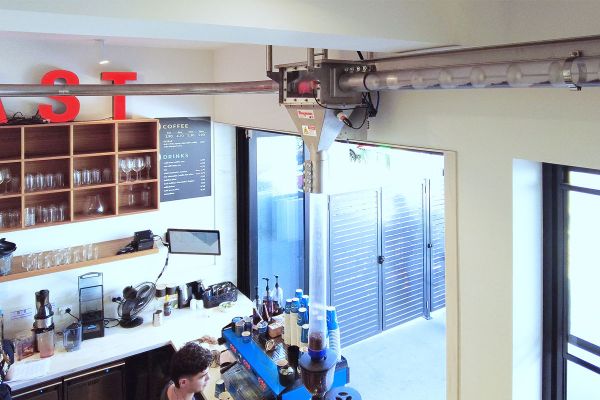Food safety is paramount, and the African Union, through the AFSA, is actively working to establish consistent standards across the continent. Foodborne illnesses have a devastating impact, causing significant deaths and economic losses. Therefore, careful selection and maintenance of food processing equipment are crucial. Poorly designed, inadequately maintained, or unsuitable equipment can lead to biological, chemical, and physical contamination risks. Choosing equipment that is easy to clean, built with safe materials, and compatible with food-grade cleaning agents is essential to prevent these hazards and ensure a safe and reliable food supply.
African Union to Set Up a Continental Food Safety Agency
On 16 February 2025, during the 38th AU Summit in Addis Ababa, Ethiopia, the African Union established the Africa Food Safety Agency (AFSA). This key initiative will play a pivotal role in reducing foodborne illnesses, strengthening food safety systems, and supporting trade under the African Continental Free Trade Area (AfCFTA).
Foodborne illnesses affect 91 million Africans and cause 137,000 deaths annually (accounting for a third of global foodborne deaths) and contributing to an estimated US $110 billion in losses across sub-Saharan African and Southeast Asia.
African Union to set up a Continental Food Safety Agency
The institution will serve as a SpecialiSed Technical Institution of the African Union, playing a pivotal role in harmonising food safety standards across the continent.
African Union to Set Up a Continental Food Safety Agency
On 16 February 2025, during the 38th AU Summit in Addis Ababa, Ethiopia, the African Union established the Africa Food Safety Agency (AFSA). This key initiative will play a pivotal role in reducing foodborne illnesses, strengthening food safety systems, and supporting trade under the African Continental Free Trade Area (AfCFTA).
Foodborne illnesses affect 91 million Africans and cause 137,000 deaths annually (accounting for a third of global foodborne deaths) and contributing to an estimated US $110 billion in losses across sub-Saharan African and Southeast Asia. [1]
In response, AFSA will act as a Specialised Technical Institution of the AU, working to harmonise food safety standards, coordinate regional effects, and support national food control systems. A key part of its agenda is to ensure that equipment used in food processing is safe, hygienic, and reliable.
Why Food Processing Equipment Choices Matter
Every aspect of food production relies on equipment performing safely and consistently. When equipment is poorly designed, inadequately maintained, or made from unsuitable materials, it becomes a direct contributor to contamination risks.
Preventing Biological Risk
Biological contamination is the most common form of food safety failure. Pathogens thrive in equipment that is difficult to clean or not built for hygienic environments. Flexicon’s sanitary equipment is specifically constructed and finished to prevent microbial growth, verify cleanliness and meet food requirements of industry associations and international government agencies.
Controlling Chemical Risks
Chemical contamination can happen when equipment breaks down or is incompatible with food-safe cleaning products. Flexicon systems are built with FDA-approved materials and designed to minimise the risk of contact with unsafe lubricants or cleaning agents.
Minimising Physical Hazards
Physical contaminants can originate from machinery that is not well maintained or not suited for a food-grade environment. Using quality-tested equipment built from durable materials minimises the risk of fragments entering the food stream. A real-world example of this is Nestlé Singapore, which improved its metal detection process by adding a Flexicon flexible screw conveyor. This upgrade helped them deliver materials more accurately into the metal detector, while maintaining high sanitary standards.
Managing Allergen Cross-Contact
The rise of food allergies has made allergen cross-contamination a growing regulatory and consumer priority. Equipment must be easy to disassemble, thoroughly cleanable, and designed to prevent residue build-up. Flexicon’s quick clean equipment support allergen management protocols by enabling rapid changeovers and validated sanitation procedures between production runs.
Building a Safer Food System for Africa
The launch of AFSA highlights the growing need for better food safety across Africa. Food manufacturers play a key role in meeting these goals by using equipment that follows safety regulations. Flexicon offers a wide range of food-grade equipment designed to be safe, easy to clean, and efficient for handling and moving bulk materials.


